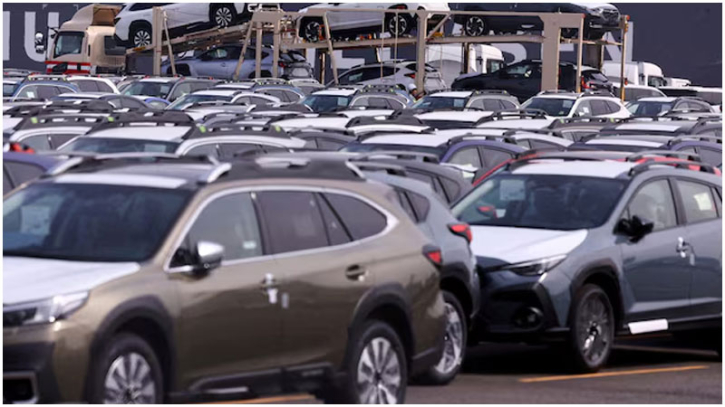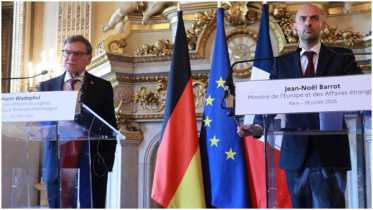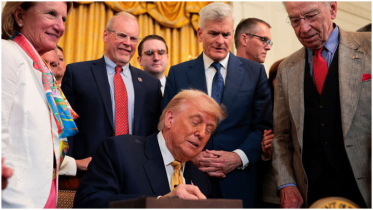Trump auto tariff U-turn gives everyone whiplash

US President Donald Trump’s auto tariff U-turn is making everyone carsick. His latest deal cuts U.S. tariffs on Japanese vehicle imports to 15% from a previous total of 27.5%, offering respite to companies that haven’t invested heavily in Stateside production. But relief could be short-lived.
Although Trump set out to support U.S. manufacturers like General Motors, Ford Motor and Stellantis, the Detroit Three hailed the move as a “bad deal” for American workers and industry. It’s perhaps most helpful for Mitsubishi Motors, which Citi estimates made nearly three quarters of its U.S.-sold autos in Japan in 2024. Before Wednesday's deal, the $4 billion group looked to be in a dire position, as it has no major manufacturing hubs outside Asia. Meanwhile, shares in peers Mazda Motor and Subaru, which made around half their vehicles destined for American roads at home, rose by more than 15% on Wednesday.
The status quo is unexpected for other reasons too. Trump himself signed the U.S.-Mexico-Canada Agreement in 2020, sanctioning the continuation of largely duty-free trade between the trio. The U.S. is the largest single market not only for the major American marques but also for Toyota Motor, Honda Motor and Nissan Motor, and all of them have factories throughout the region to take advantage of the USMCA. Those Mexican- and Canadian-made cars still face duties of 25%.
Some can handle sharp turns. Toyota, for example, sold 2.3 million cars in the U.S. in the 12 months to the end of March and produced 2.1 million cars in North America, but it doesn’t depend solely on local facilities. In fact, it imported from Japan 24% of cars sold in the U.S. in 2024, per Citi. The world’s largest carmaker is also more profitable than Honda or Nissan – its operating margin was around 10% in its most recent financial year – meaning it can more easily"] absorb the extra costs from heftier duties.
There will be more twists. On Sunday, U.S. Commerce Secretary Howard Lutnick said Trump will “absolutely” renegotiate USMCA. Japanese and U.S. automakers are also watching closely to see whether Seoul can argue for lower levies for Hyundai and Kia. Those brands accounted for over a tenth of the American market in the first six months of this year, Cox Automotive reckons. And the Hyundai group’s local production capacity covered only 40% of the cars they sold there last year, per Moody’s. For now, they face 25% rates, with tariffs already costing Hyundai Motor more than $600 million, the company said on Thursday.
Longer term, automakers might decide the simplest solution is to invest more in the U.S. itself; Toyota, Hyundai and others have started down that route. But expanding production takes years. In the meantime, carmakers and investors will be nursing whiplash.
.png)




